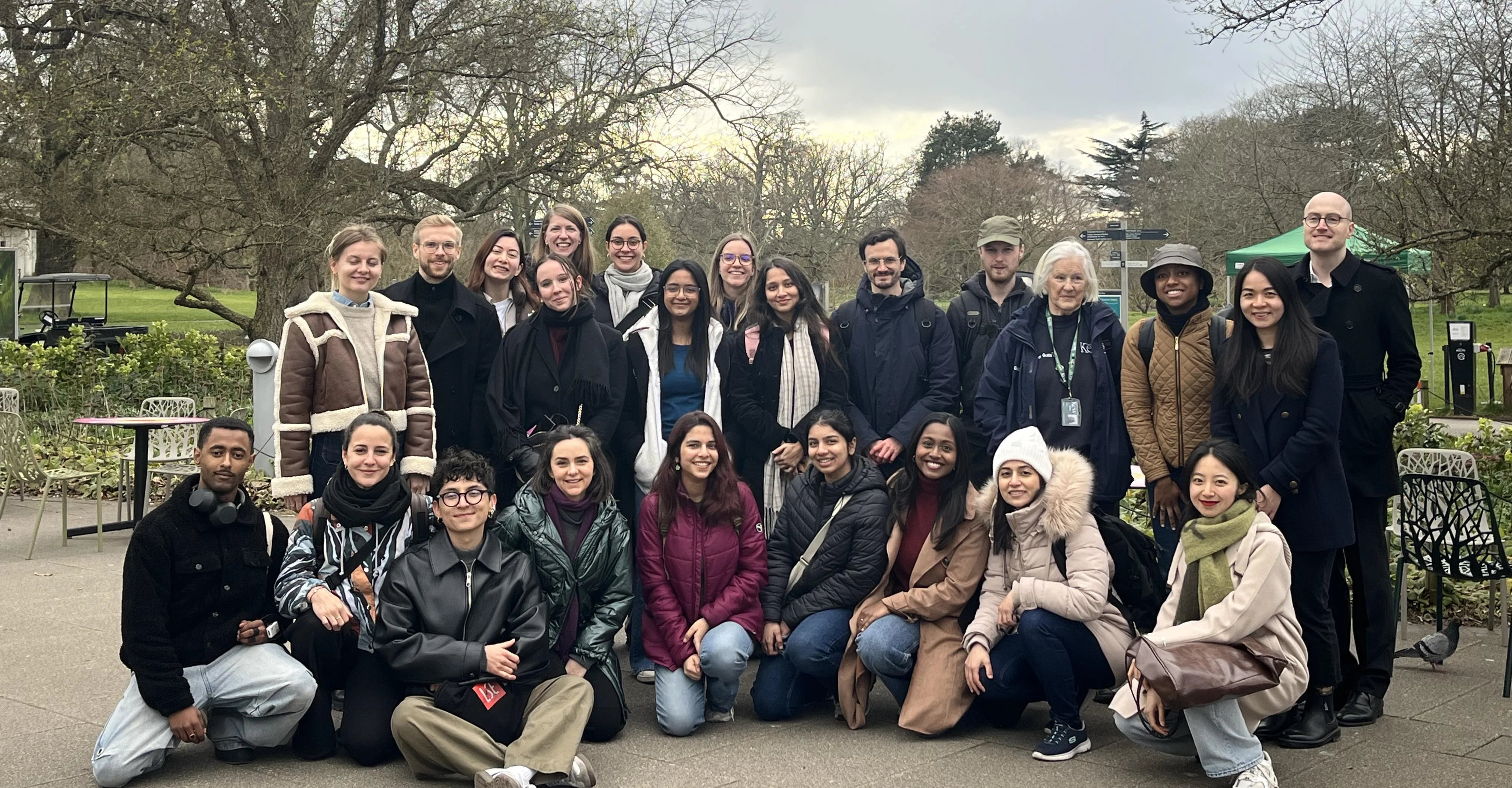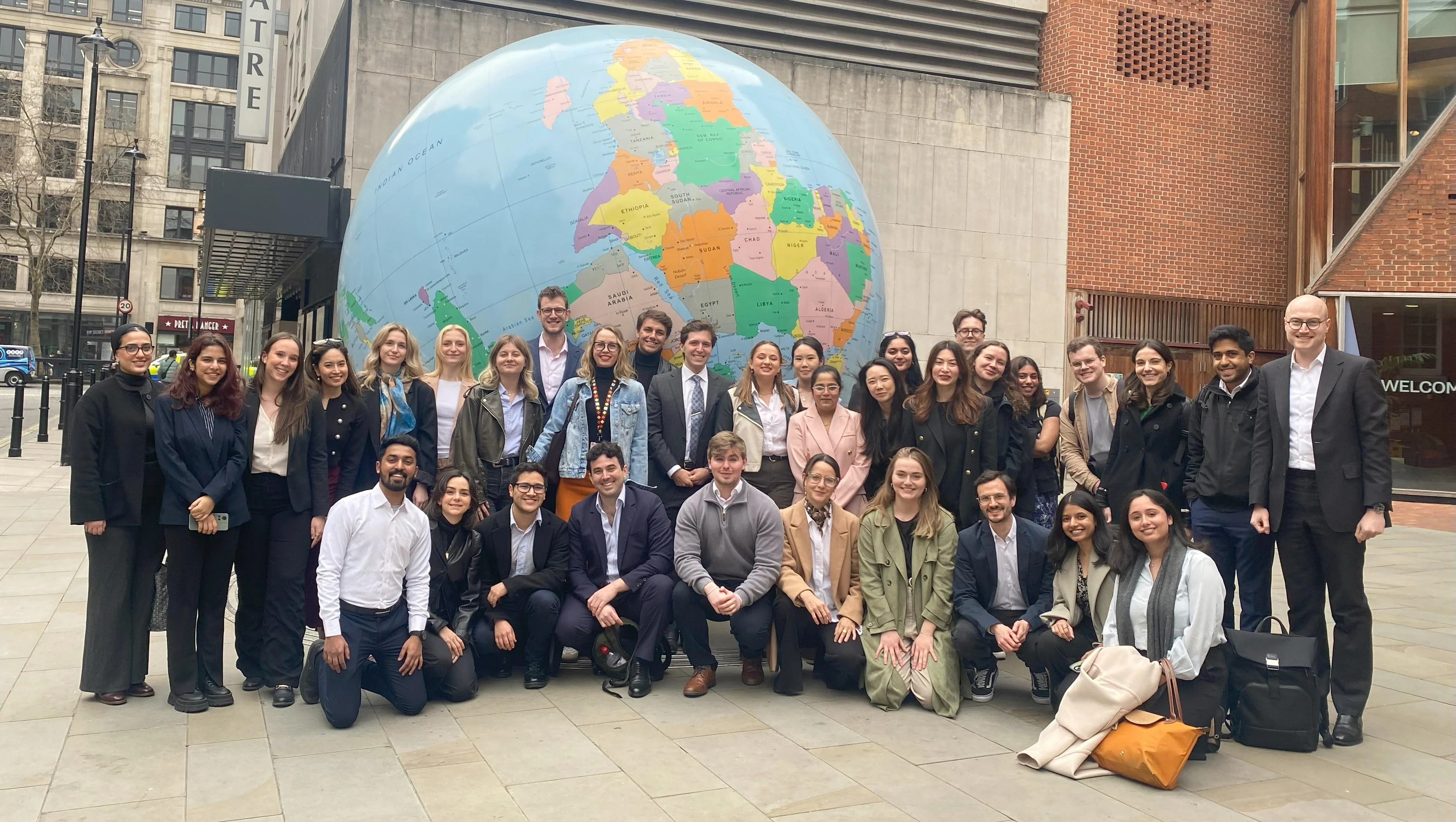Shaping happier societies: LSE’s leading role in wellbeing education
LSE is home to some of the world’s foremost experts in wellbeing, several of whom are based in the Department of Psychological and Behavioural Science. Their expertise not only drives cutting-edge research and policy in the field, but also enriches the department’s teaching, ensuring that students engage directly with the latest developments in wellbeing science. From exploring what makes for a good life to applying wellbeing data in real-world policy settings, students are equipped with the insight and tools to make a meaningful difference as they pursue their careers.
Professor Liam Delaney, Head of the Department of Psychological and Behavioural Science, said: "LSE was founded on the idea that social science should serve human progress. Our wellbeing teaching carries that spirit forward, drawing on rigorous behavioural and social science to understand what helps people and societies to flourish, and how that insight can be used to shape better policy, organisations, and communities."
Flagship courses
Happiness
One of the most popular courses in the Department of Psychological and Behavioural Science, simply titled Happiness, was originally created by leading happiness expert Professor Paul Dolan and is now led by Dr Kate Laffan. The course, which has been running since 2013, introduces students to key concepts and tools from philosophy, psychology, economics, and other social sciences. It shows how happiness research sheds light on the human condition, helping us address questions like 'who do we compare ourselves to?', 'how can we forecast our wellbeing and where do we make mistakes?', and 'why do we adapt to some circumstances but not others?'. It also explores how subjective wellbeing insights can be leveraged to promote wellbeing in government, business, and the non-profit sector. Demand for the course is high, not just among students from Psychological and Behavioural Science, but from many other departments around LSE.
Participants on the course enjoy its interdisciplinary nature and the interactive style of delivery, which allows students of all backgrounds to bring their own knowledge and experiences to bear on this universally interesting topic. Dr Kate Laffan said: "From the very beginning, the course set out to expose students to the cutting-edge science on what makes for happy lives and societies. Its growth and success reflect LSE students’ interest in and commitment to working towards both of those fundamentally important personal and social goals."

Wellbeing for Policy
Wellbeing for Policy, led by Dr Christian Krekel, introduces students to wellbeing-focused policymaking, with an emphasis on how wellbeing data can be applied in practice during policy appraisal and evaluation across all sectors including government, business, and international organisations.
Often dubbed by students as one of the most challenging yet rewarding courses in their university career, the course features an innovative assessment approach that includes a so-called field simulation. Each year, students are randomly assigned to fictitious policy consulting companies and, within these, randomly to specific roles. Working collaboratively as teams, they then tackle a real policy issue provided by a UK government department and develop detailed policy appraisals, including cost-benefit and cost-effectiveness analyses. The project culminates in presentations to an audience of real UK civil servants and policymakers, offering students valuable experience in applying their skills to real-world policy challenges. Former UK government departments participating in the field simulation include the Department for Transport (DfT), the Department for Levelling Up, Housing and Communities (DLUHC), and the Ministry of Housing, Communities and Local Government (MHCLG).
"We have been doing this field simulation for three years now, and each year I am amazed by the grit, rigour, and professionalism by which our students deal with the policy appraisal at hand," said Dr Christian Krekel. "The field simulation is as close to realism as one can possibly get in a university setting, and it is the perfect preparation for our students for their professional lives."

MSc Behavioural Science
The Department of Psychological and Behavioural Science launched its flagship MSc in Behavioural Science in 2019, and the programme has since become one of LSE’s most popular postgraduate offerings, attracting over 500 applicants each year. Admission is highly competitive, with around 70 exceptionally talented and motivated students joining the programme annually. Graduates of the MSc are in high demand across sectors, securing roles with leading employers in the behavioural science field and beyond.
The Wellbeing Specialism
There is a growing demand for governments, businesses, and NGOs to place people and their wellbeing at the centre of policy design. Responding to this need, the MSc Behavioural Science programme introduced the Wellbeing Specialism, offering students rigorous training in both behavioural science and wellbeing.
Students in the specialism take both Happiness and Wellbeing for Policy, which allows them to explore the topic through multiple lenses. They examine behavioural phenomena uniquely captured by wellbeing research, investigate how happiness varies across individuals and societies, and critically assess the limitations of wellbeing science. Students also focus their dissertation on wellbeing.
Importantly, students then learn how to apply these insights to wellbeing policymaking, covering all stages from design to appraisal and evaluation. They gain familiarity with wellbeing theories and frameworks, the evidence on the causes and consequences of wellbeing, and key approaches to data collection, measurement, and survey design. Students also develop skills in wellbeing policy appraisal, using techniques such as cost-benefit and cost-effectiveness analysis, as well as methods for policy evaluation, social welfare analysis, and wellbeing interventions.
Students value this applied focus and the chance to engage directly with policymakers. "I really enjoyed doing the Wellbeing Specialism and I would thoroughly recommend it to all students who want to better understand what truly matters to people, " said Eddie Hillier, a student from the 2024/25 cohort. "The modules are interactive and engaging, providing you with both a detailed understanding of happiness and the ability to apply these insights to real-world policy settings. I particularly valued the opportunity to use what we had learnt and present our own project to UK civil servants, it was a really rewarding experience."
"We are proud of how the Wellbeing Specialism has grown into one of the defining features of PBS, and even prouder of the impact our graduates are having, bringing wellbeing science into government, business, and communities across the world," said Professor Liam Delaney.
This is echoed by alumni of the Specialism. “Studying wellbeing at LSE was the perfect antidote to my disillusionment with traditional economics," said alumnus Ben Stewart. "It gave me the tools to stop pretending GDP was all that mattered and to focus instead on what genuinely improves people’s lives. The practical training set me up perfectly for my work at the Happier Lives Institute, where we identify the charities that most cost-effectively improve people’s lived experience in low-income countries, rather than relying on assumptions about what their lives ‘should’ look like.”
Wellbeing around LSE
In addition to taking two dedicated courses on wellbeing and focusing their dissertation on the topic, students in the Wellbeing Specialism benefit from direct engagement with leading researchers, emerging scholars, and policymakers from around the world through the LSE Wellbeing Seminar. Hosted by LSE’s Centre for Economic Performance and co-organised by Dr Christian Krekel, this seminar series – running since 2012 and so the longest-running seminar exclusively dedicated to wellbeing in the world – offers students a valuable chance to engage with the latest research and policy developments in the field.
Teaching on wellbeing at LSE extends beyond the Department of Psychological and Behavioural Science. World-renowned wellbeing expert Professor Lord Richard Layard leads Happiness and Public Policy, a distinctive course offered to students across LSE’s Master of Public Administration programmes. Designed for future policy leaders, the course explores how making wellbeing an operational objective of policy making is in the very self-interest of policymakers. It also examines how government policies would be likely to change if they were chosen according to their cost-effectiveness in generating wellbeing.
"Every public servant should have learned about how policy decisions affect people's wellbeing," said Professor Lord Layard.
Summer School
LSE also provides wellbeing teaching beyond traditional degree programmes. The LSE Summer School offers Happiness and Policy — taught by Dr Krekel and Dr Laffan — the world’s first comprehensive course of its kind dedicated to the science of wellbeing and its application to policy design, appraisal, and evaluation.
Shaping the future
With world-leading experts, innovative teaching, and a strong focus on real-world impact, LSE is shaping the future of wellbeing research and policy. Whether students are exploring the science of happiness, applying wellbeing data to policy challenges, or engaging with global thought leaders, they leave equipped not just with knowledge, but with the tools to make a meaningful difference in people’s lives.